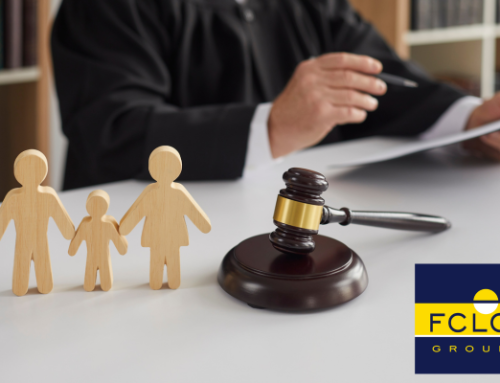An emerging trend in the field of alternative dispute resolution, the collaborative divorce process is a structured and cooperative out-of-court approach for those in a legal dispute. The goal of collaborative divorce is to come to a solution in a positive, results-focused setting. Family Complex Litigation & Collaborative Group is devoted to the resolution of high-stakes, complex or complicated marital and family law cases in Orlando, whether through the litigation process, the appellate process, mediation, settlement or the collaborative process.
An Overview of Collaborative Divorce
For lawyers who are used to addressing family law issues using the court system, the collaborative process requires a change in focus-it is a paradigm shift. It requires a collaborative, solution-based approach rather than positional bargaining and leveraging.
Collaborative divorce takes the family’s personal, emotional, and financial business out of the hands of a judge. It allows the parties, with input and assistance from their attorneys and the professional neutrals, to address their unique situation to give them the most control over the outcome.
What You Need to Know
1. How is a collaborative divorce commenced? To proceed through the collaborative process, both parties, their respective lawyers, a financial neutral, and a mental health neutral/facilitator must sign a collaborative law participation agreement, which begins the process regardless of whether a court proceeding is pending.
If a court proceeding is pending when the parties commence the collaborative divorce process, a notice is filed with the court and the notice operates as an application for a stay of the court proceeding.
2. Who is involved in the collaborative divorce process? Typically, a collaborative divorce involves both parties and a team of four professionals (i.e., each party’s lawyer, a mental health neutral and a financial neutral) to help the parties through the financial, emotional, and legal issues of a divorce or separation. The two parties and the four professionals are often referred to as the Collaborative Team. More specifically, each party has a collaborative attorney who guides and assists his or her respective client through the process. The mental health neutral serves as a facilitator to assist the parties with parenting and children’s issues and to help ensure that the collaborative team and process remain on a collaborative and non-adversarial track.
The financial neutral helps the parties compile the necessary financial records relating to assets, liabilities, income and expenses, and then he or she may perform analyses, valuations, including business valuations, and other work designed to help the parties and their attorneys evaluate and create solutions for the settlement of financial issues like the equitable distribution of assets and liabilities, alimony, and child support.
So, the parties become part of this Collaborative Team with professionals having expertise in legal, financial, parenting, and mental health issues.
3. Is the collaborative divorce process open to the public and, if not, how does the process work? The collaborative divorce process is a private process that takes place outside of the court system. Because it is a private settlement process, the communications and work in the collaborative process are confidential and do not become part of the public record. This is one of the many benefits of the collaborative divorce process. The professionals are specially trained to assist the parties with option building and, during the collaborative divorce process, the Collaborative Team has a series of meetings during which the parenting and financial issues are discussed, options are developed and the parties choose those options that meet their respective objectives. The meetings are interactive and client-centered, meaning that the parties control the pace and ultimate outcome of their matter. Of course, each party is free to confer with his or her attorney at any time between meetings and may even confer with the mental health or financial neutral as may be necessary.
The process is designed to be a non adversarial process that preserves a working relationship between the parties and reduces the emotional and financial toll of a divorce.
4. What matters may be settled through the collaborative process and is it the right process for my case? By Florida statute, parties may use the collaborative law process to settle matters arising under the divorce statute (chapter 61) and the paternity statute (chapter 742), including divorce, dissolution, annulment, marital property distribution, child custody, visitation, parenting plan, parenting time, alimony, maintenance, child support, parental relocation, parentage, paternity, and premarital, marital and post marital agreements. Whether it is the right process for a particular matter should be determined after consulting with a family law attorney and obtaining sufficient information about the collaborative law process, including the alternatives to the collaborative law process, and how it may apply to your matter. Once a party has sufficient information, he or she may decide whether the collaborative law process is right for that particular matter.
And, keep in mind, that use of the collaborative law process requires the mutual written agreement of both parties. A party may not be compelled to use the collaborative law process.
5. Is the collaborative law process here to stay and is it always successful when used? The collaborative law process is here to stay. In fact, in 2016, the Florida Legislature enacted the Collaborative Law Process Act and, in 2017, the Florida Supreme Court adopted a specific procedural rule for the collaborative law process, as well as an ethical rule setting forth the attorney’s duty to explain the process to his or her client, as well as other ethical obligations relating to the collaborative law process. So, the collaborative law process has been sanctioned by the Florida Legislature and the Florida Supreme Court. While most matters that proceed through the collaborative law process result in an amicable resolution, they do not all succeed. For those that do succeed, statistics show that the parties involved spend less money than those who litigate similar matters.
If the collaborative law process is not successful and the matter must then be litigated, the collaborative attorneys, the mental health neutral, and the financial neutral may not be involved in the litigation, meaning that each party must retain new counsel and, if needed, retain their individual mental health and financial consultants. This may be an incentive for remaining in the collaborative law process to build options for resolution rather than expending the money and taking the risks inherent in seeking a court-ordered resolution.
Consult With An Orlando Collaborative Divorce Lawyer About Your Options
If you’re considering filing for divorce — or are currently involved in a divorce, support, custody, property division, or paternity dispute — and would like more information about the collaborative practice of family law, you should contact an attorney with collaborative family law experience. An experienced Orlando divorce lawyer will be able to explore all of your options with you and advocate on your behalf.







